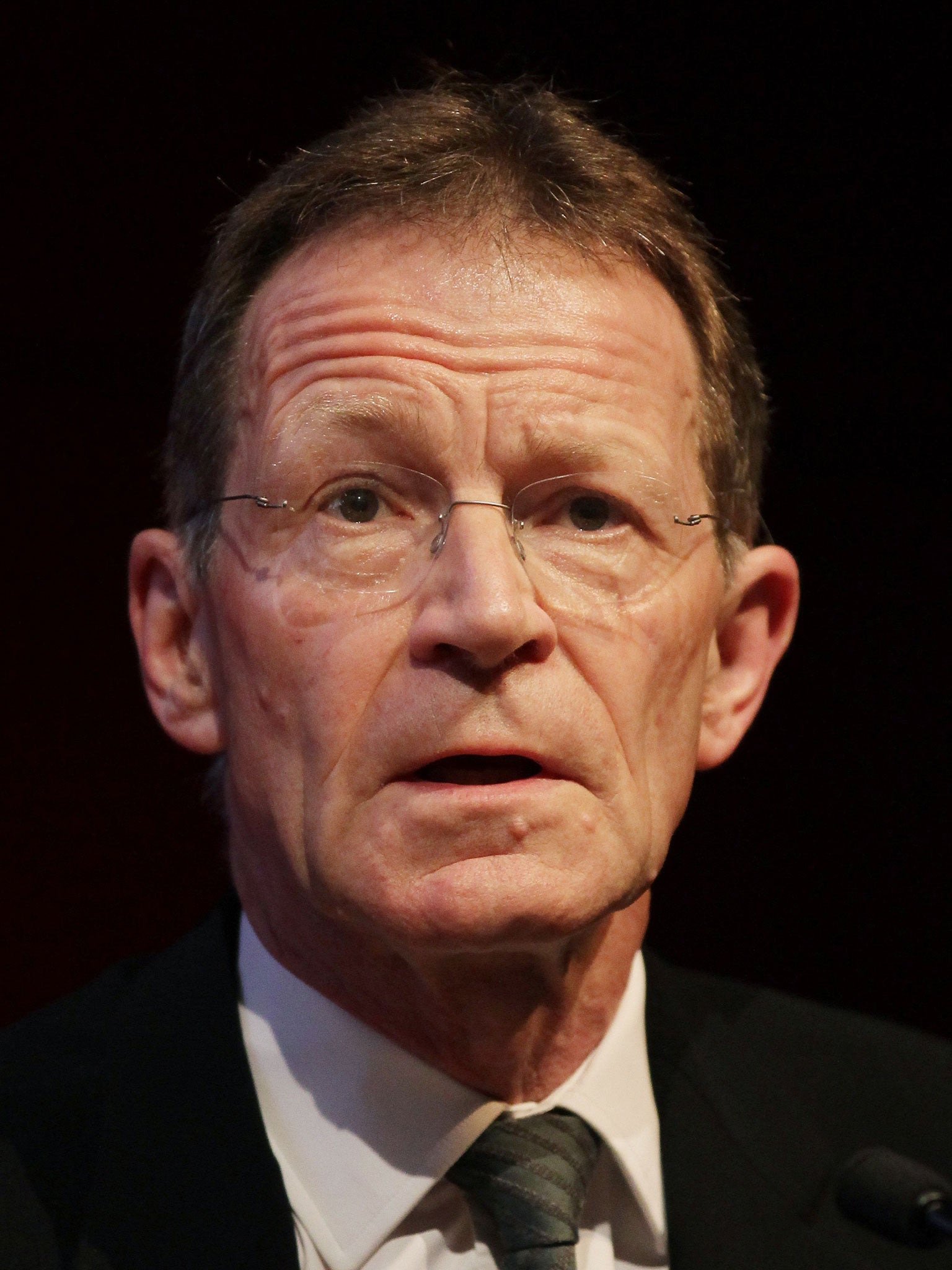Artists afraid of losing sponsors ‘are self-censoring,’ says Sir Nicholas Serota
The director of Tate Galleries warns of influence of special interests as study reveals limit to creative freedom

Your support helps us to tell the story
From reproductive rights to climate change to Big Tech, The Independent is on the ground when the story is developing. Whether it's investigating the financials of Elon Musk's pro-Trump PAC or producing our latest documentary, 'The A Word', which shines a light on the American women fighting for reproductive rights, we know how important it is to parse out the facts from the messaging.
At such a critical moment in US history, we need reporters on the ground. Your donation allows us to keep sending journalists to speak to both sides of the story.
The Independent is trusted by Americans across the entire political spectrum. And unlike many other quality news outlets, we choose not to lock Americans out of our reporting and analysis with paywalls. We believe quality journalism should be available to everyone, paid for by those who can afford it.
Your support makes all the difference.British gallery and theatre directors routinely self-censor for fear of upsetting sponsors, the public or media, according to the surprising findings of new research. This has upset the popular perception that British artists work with complete creative freedom, unlike in many other parts of the world.
Some controversial works are held back from public display because directors are worried they will cause offence to financial backers or minority interests, claim researchers.
Sir Nicholas Serota, the director of Tate Galleries, warned that creative freedoms were being “usurped by special interests, misunderstandings or misapplication of the law”, when he addressed a summit of 220 British cultural leaders, sponsors and religious groups convened to tackle the issue of self-censorship.
Serota confessed that decisions over the potential removal of an artwork deemed “offensive” were fraught for arts directors: “You are isolated as a director. You have to take very difficult decisions with a clamour around you.”
He added: “We can probably all agree on many of the principles that we seek to uphold. What’s actually much more difficult is to recognise that there are no easy paths, that there are no guarantees by which, and through which, we can preserve this hard fought-for right for the freedom of free expression.”
Findings by the campaign group Index on Censorship, published today, conclude that despite the popular assumption that British artists work with absolute creative freedom: “The absence of direct state-sponsored, highly visible censorship, which prevails in many countries around the world, may contribute to the commonly held view that there is no censorship in this country and that it is not a problem.
“However, speakers [at the conference] from across the sector confirmed censorship is a major issue for the arts, and it comes in many different forms.”
Index adds: “The causes of self-censorship range from the fear of causing offence, losing financial support, violent public reaction or media storm, prejudice, managing diversity and the impact of risk aversion.” Some arts bodies fear that “they might incur criminal charges over displaying some controversial works” while others admitted “a lack of knowledge around legal limits contributed to self-censorship”.
UK laws outlaw hate speech and criminalise grossly offensive expression, but because there have been very few court cases over artistic expression, boundaries are often controlled by non-judicial considerations such as public opinion and taste, Index notes.
Julia Farrington, head of arts at Index on Censorship, said: “Over the past two years we have learnt that censorship and particularly self-censorship are significant factors threatening the cultural space.
“The key question is why, in a country that values its freedoms, self-censorship is pervasive and in the eyes of many an increasing problem?”“
Join our commenting forum
Join thought-provoking conversations, follow other Independent readers and see their replies
Comments